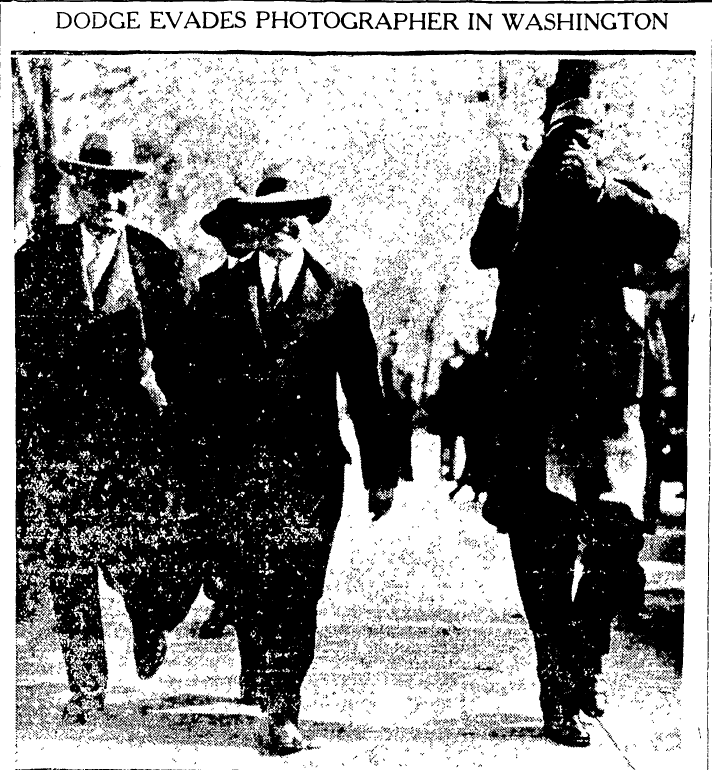George Remus (left), his flapper daughter Romola (middle), and co-counsel Charles H. Elston (right) sit at the defendant’s table during the sensational murder trial.
Franklin L. Dodge, Jr., tried to keep his photo from the newspaper reporters that tracked his every step. As the national spotlight intensified, he would soon be outed.
Once the press got Dodge’s photo, he sat for a formal pose. Newspapers used this headshot most often when illustrating stories about the Bootleg King and his shenanigans.


